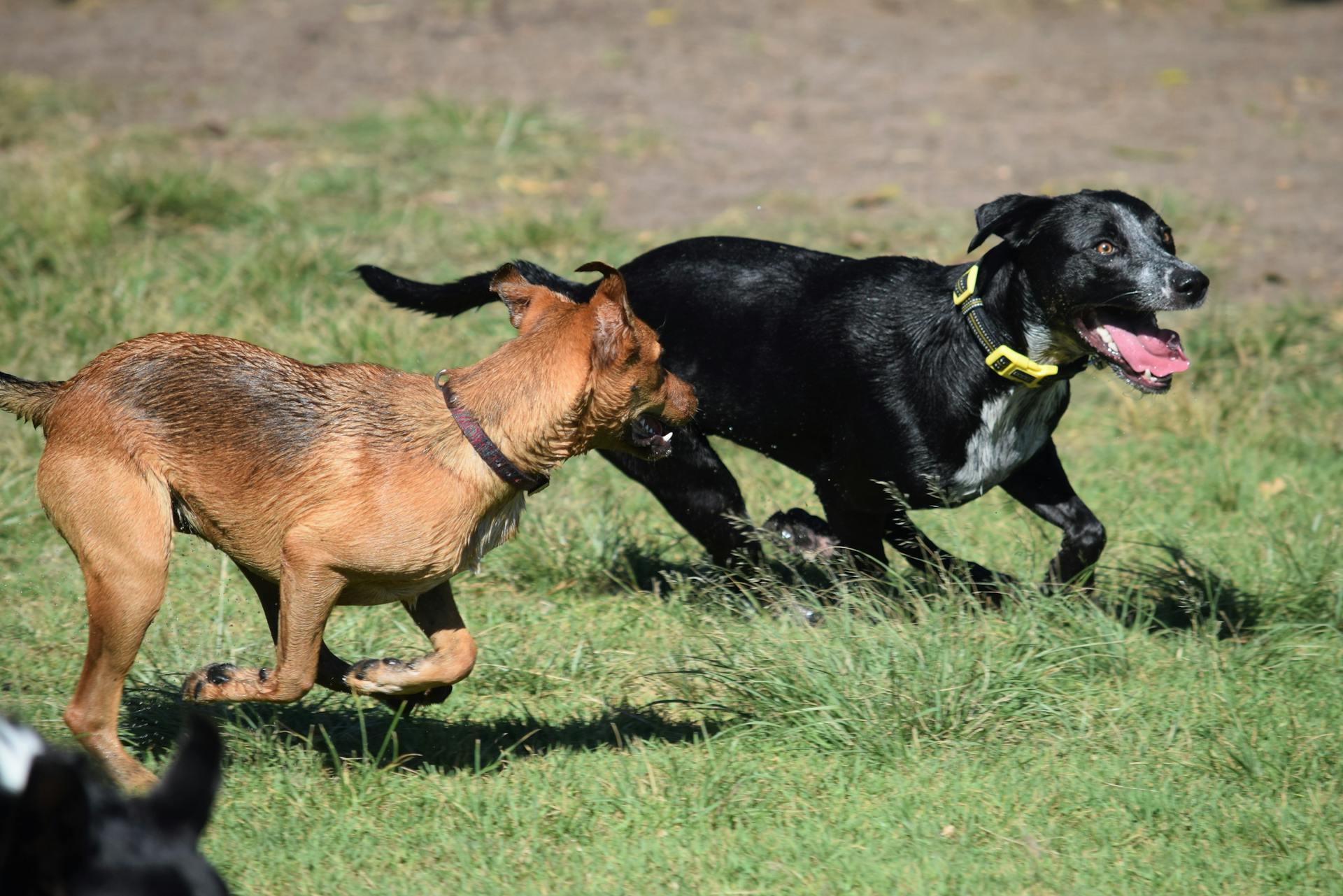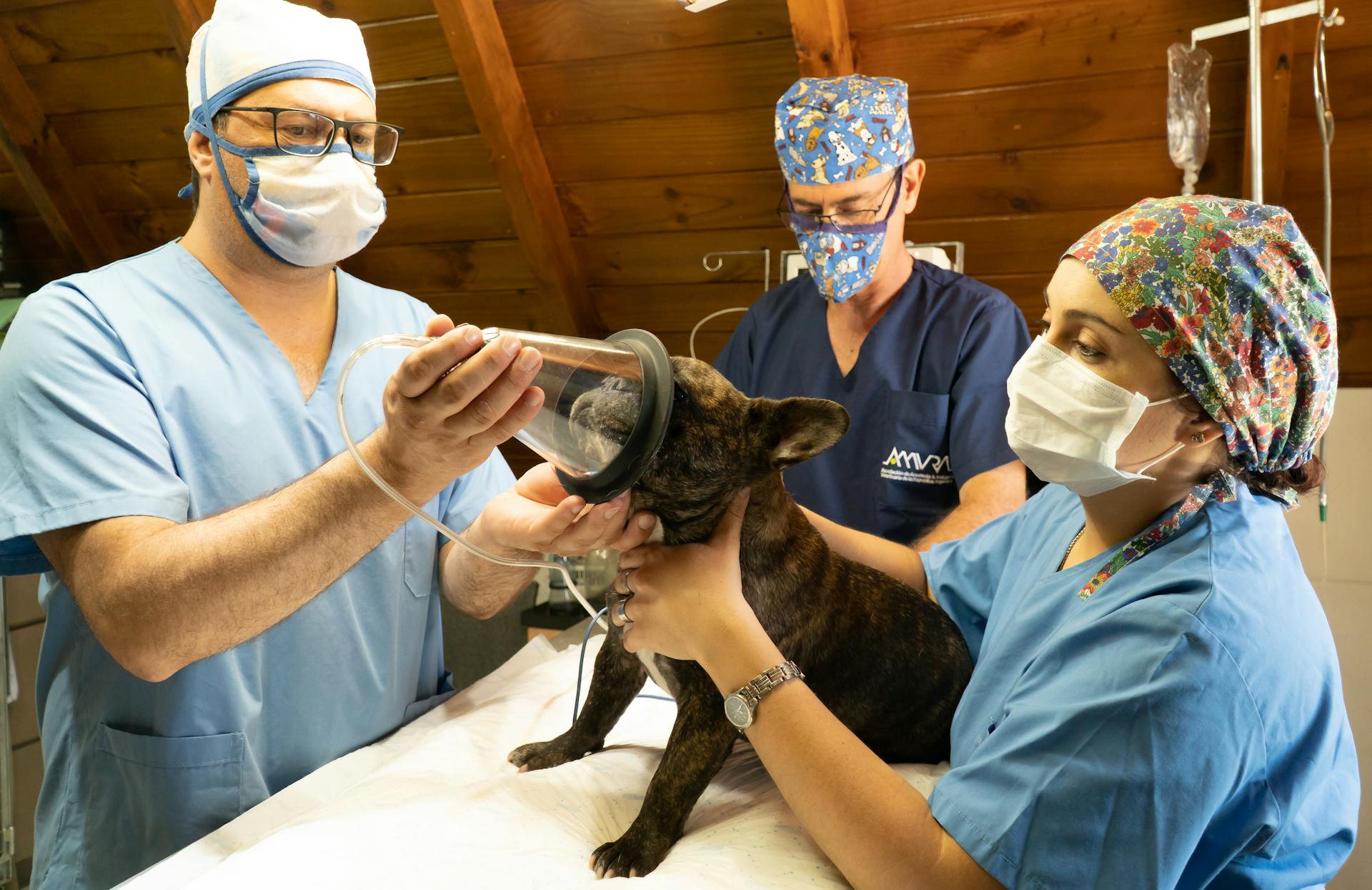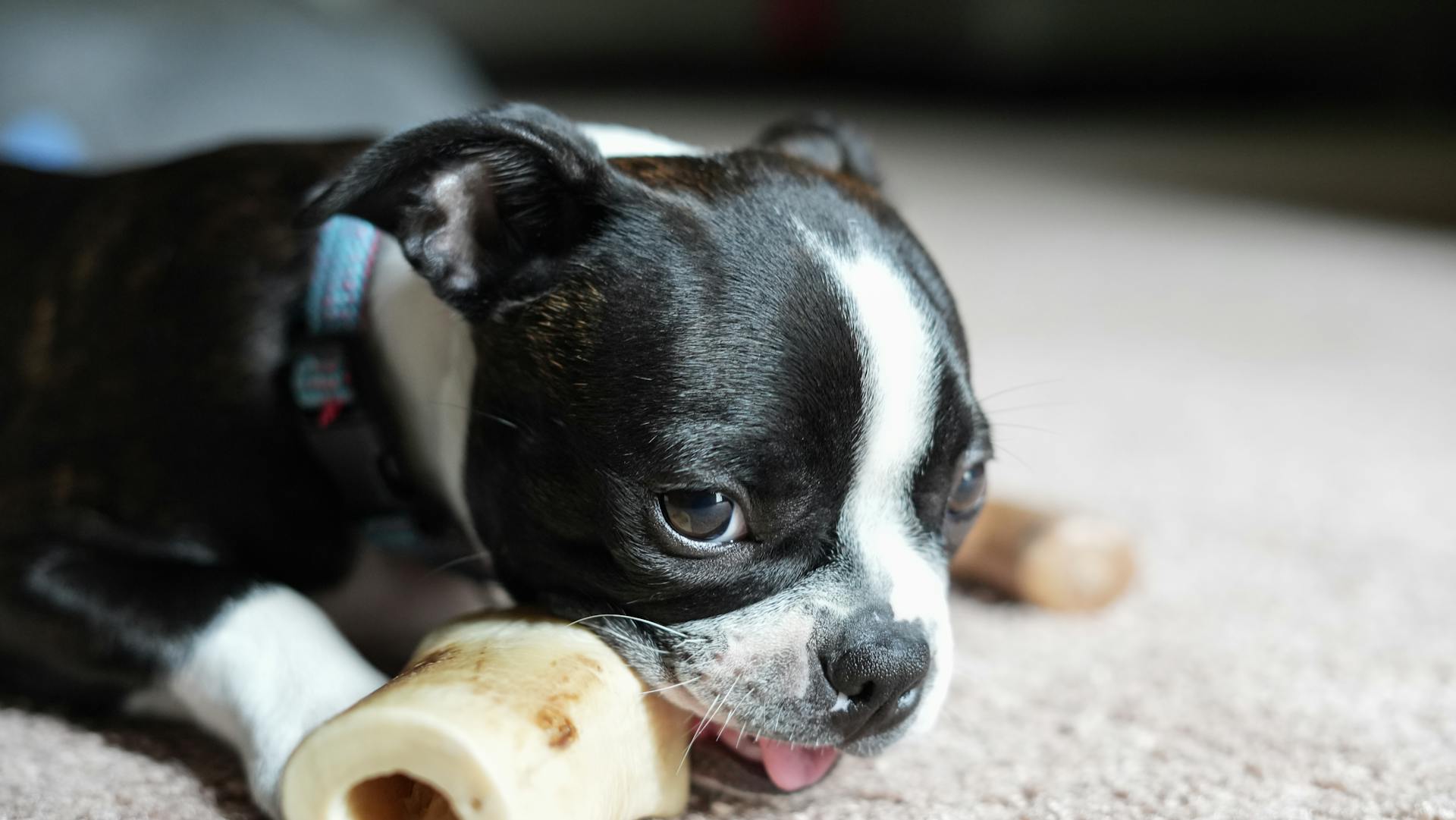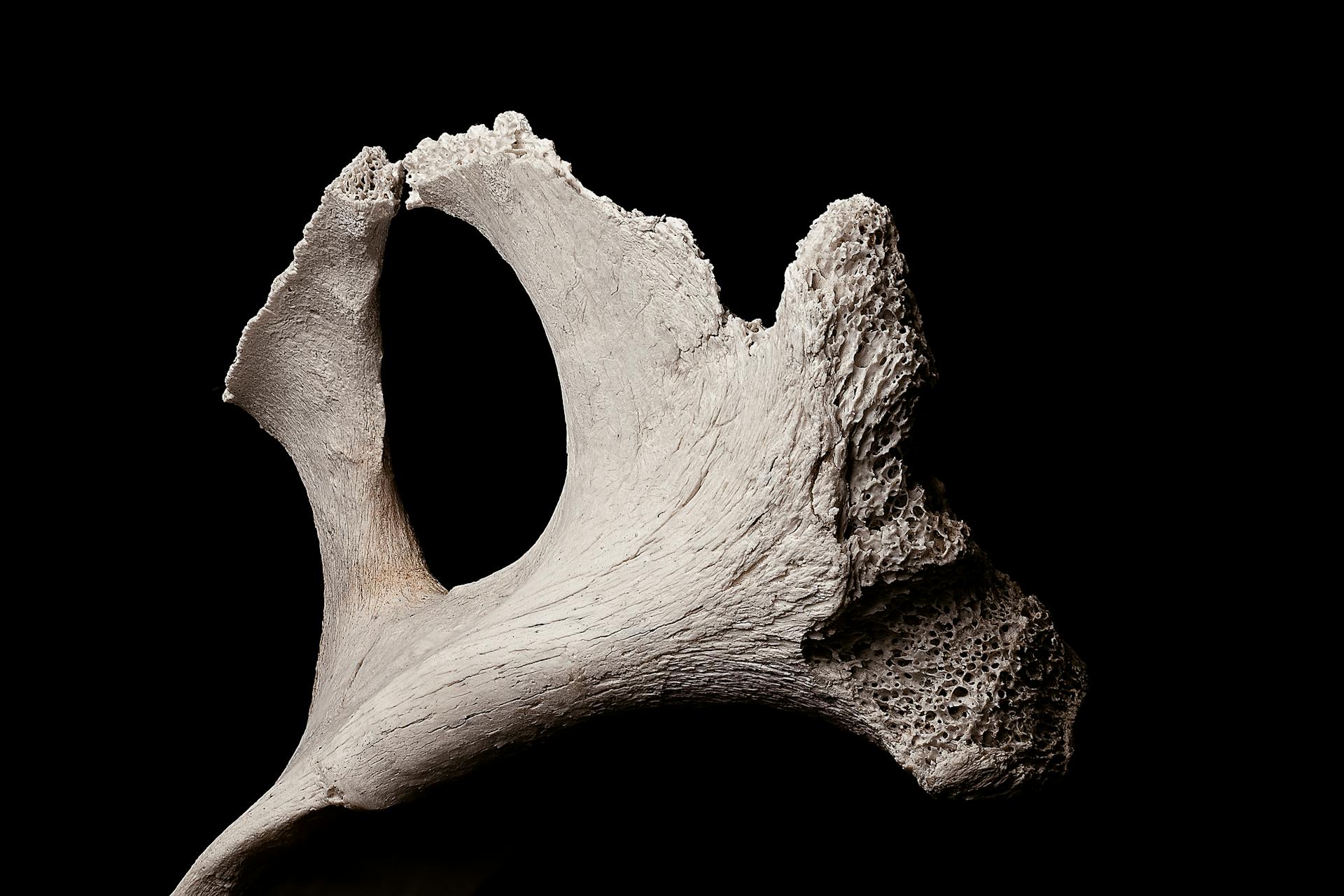
Dogs can choke on fish bones, which can be a serious health risk.
Fish bones can also cause internal damage, such as puncturing the digestive tract or intestines, leading to infection and potentially life-threatening complications.
Dogs may not be able to digest fish bones, which can cause a blockage in the digestive tract.
If your dog ingests a fish bone, it's essential to seek veterinary attention immediately.
Can Dogs Eat Fish Bones?
Dogs can't safely eat fish bones, as they can cause aggravation or physical injury if the fragments are swallowed, and the lining of the digestive tract is scratched or penetrated.
Fish bones can even migrate through the walls of the stomach or the intestine and cause injury to adjacent organs and soft tissues.
This is especially true for raw fish bones, which are soft and pliable, but cooked fish bones are pointy, sharp, and much more dangerous.
So, it's best to remove fish bones altogether when feeding your dog fish.
Can Sardines?
Sardines are generally safe for dogs to consume due to their small size. They can be eaten skin-on and with the bones.
However, it's essential to look for brands that are packed in water and contain no added salt. This ensures your furry friend gets the benefits of sardines without any potential harm.
Sardines with the MSC Certified blue fish labels are a good choice. This label indicates that these fish are harvested from wild-caught fisheries with sustainable populations that work to minimize any negative impact on local marine habitats.
It's always a good idea to consult with your veterinarian before introducing new foods, including sardines, into your dog's diet.
Can Lobster?
Dogs can safely eat lobster, but it's essential to cook it thoroughly and remove the shell.
Lobster is high in protein, iron, zinc, and omega-3 fatty acids, making it a nutritious addition to your dog's diet.
However, it's crucial to note that lobster can be high in iodine, sodium, fat, and cholesterol, so it's best to feed it in moderation.
Some dogs may do better with cooked lobster due to certain medical conditions, such as those undergoing cancer treatment.
Safety and Risks
As a dog owner, you want to make sure your furry friend is safe while enjoying a tasty treat. But, did you know that some bones can be hazardous to your dog's health?
Cooked bones are a no-go, as they're hard and brittle, making them prone to splintering into sharp fragments that your dog can swallow.
Fish bones, in particular, are a big problem because they're small and sharp, and your dog may not know how to chew them properly.
Some vets feel that the risks of dog bones outweigh the potential benefits, and for good reason. Gastrointestinal obstruction, choking, and cuts and wounds in the mouth or tonsils are just a few of the potential risks associated with dog bones.
Here are some of the potential drawbacks of dog bones, as outlined by the FDA:
- Gastrointestinal obstruction (blockage in the digestive tract)
- Choking
- Cuts and wounds in the mouth or tonsils
- Fractured or severely worn teeth
- Vomiting
- Diarrhea
- Rectal bleeding
- Death
It's essential to consult with your vet before giving your dog a bone, as they can help you make an informed decision based on your pet's individual health and risk factors.
Digestion and Health
Dogs can actually digest certain types of bones, but it's essential to remember that smaller bones, such as fish bones, can become lodged in your dog's throat and intestines and lead to serious medical problems.
If you're going to feed your dog a bone, you should talk to your vet first and make sure it's a type of bone that they can safely chew on and digest. This is crucial to avoid any potential health risks.
The leftover tissue on a bone, even after it's stripped down, may provide some important nutrients for your dog. This includes cartilage, marrow, or meat that's left on the bone.
However, bones aren't a substitute for healthy dog food, so don't rely on them as a primary source of nutrition for your dog.
Chewing on bones can help promote healthier teeth by working some of the plaque off, but this can be a drawback if your dog has lost teeth or had other oral problems previously.
It's great to see your dog enjoy a bone, but it's essential to consider their overall health and well-being before giving them a bone to chew on.
Curious to learn more? Check out: Dog Chew
What to Do in an Emergency
If your dog eats fish bones, monitor them closely for any signs of intestinal obstruction or medical emergency.
Dogs can be completely fine after eating bones, but it's better to be safe than sorry.
If you notice any signs, take your dog to the vet right away for imaging tests to figure out whether they have an obstruction.
A vet can use imaging tests to determine if your dog has an obstruction, so you can rest easy knowing your dog is healthy.
Featured Images: pexels.com


